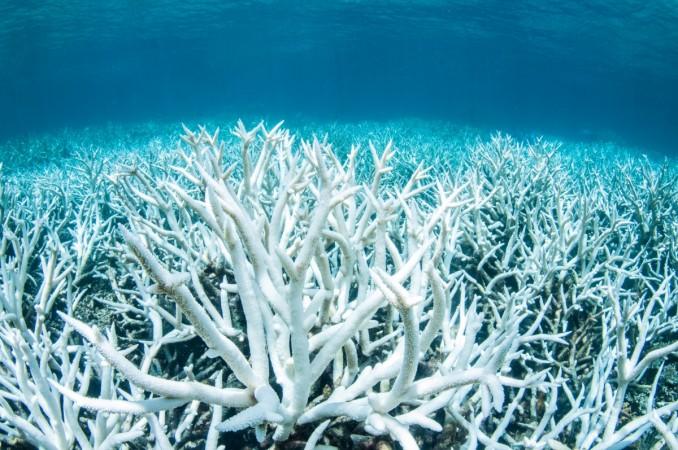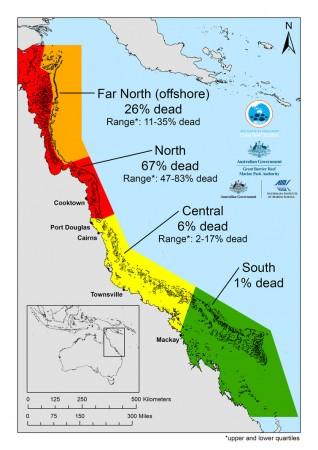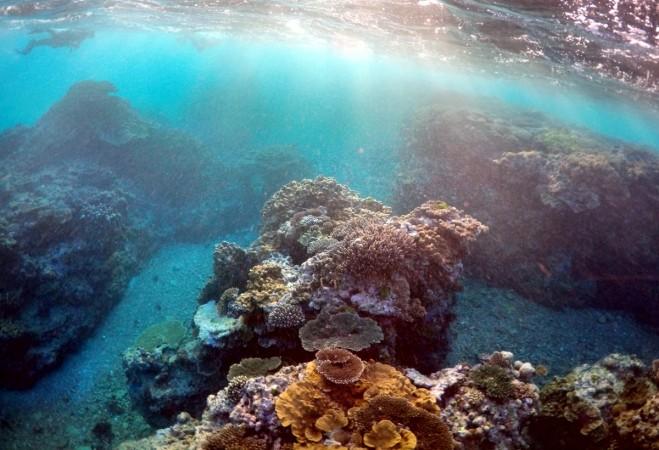
Abnormal environmental conditions, such as soaring sea temperatures, have led to mass bleachings of the Great Barrier Reef, Earth's greatest natural wonder. The bleachings have almost rendered the zooxanthallae -- the colour-providing algae of the coral reef — extinct. This has resulted in the once-vibrant area, turning into a deathly-white graveyard.
Also Read: Climate change could send Earth's atmosphere back to the Triassic period...and that's not good
Around 35 percent of the central and northern regions of coral was found to be dead or on the verge of dying due to last year's mass bleaching, a report by the Independent revealed.
There is a possibility that the bleached coral could heal if the algae grow back, but it will be a time-consuming process and the sea's would need to cool down, which is unlikely due to climate change and extreme weather patterns.
Aerial surveys of the Reef were conducted by Professor Terry Hughes and Dr James Kerry from the ARC Centre for Excellence for Coral Reef Studies at James Cook University.
The researchers covered more than 8,000km of the Great Barrier Reef and found that only a third of its southern region was unaffected by the bleaching.

This year's mass bleach is the second to have occurred over a span of 12 months. It is also among the most hazardous bleachings that the Great Barrier Reef has seen since 1998.
Prof Hughes revealed that the gap of time was between the last bleaching and this one, is abnormally small.

"There is concern over the frequency of bleaching of the reef when it takes around 10 years for some of the coral to recover from these events," Prof Hughes told The Guardian.
"The significance of bleaching this year is that it's back to back, so there's been zero time for recovery," he said, adding that while it is too early to tell the extent of the damage that will be caused by this year's bleaching, the effects will be seen up to 500km south of the areas damaged last year," he added.
The reef has been facing various issues that are damaging it, like the impact of Tropical Cyclone Debbie that lately affected the area, and last year's El Nino weather pattern, etc, but the most serious issue that's impacting the reef is the significant change in temperature, triggered by global warming, Prof Hughes added.
"The sooner we take action on global greenhouse gas emissions and transition away from fossil fuels to renewables, the better," he told the BBC.
According to Randi Rotjan, a marine biologist at Boston University in Massachusetts, the news is scary.
"The scale of the devastation means its losing its potential to reseed the parts of the reef that were previously damaged," Rotjan told the New Scientist.















